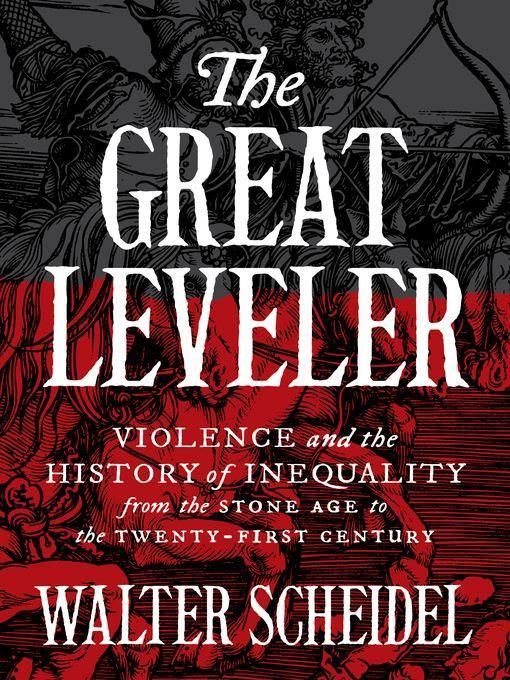
The Great Leveler
Violence and the History of Inequality from the Stone Age to the Twenty-First Century
- اطلاعات
- نقد و بررسی
- دیدگاه کاربران
نقد و بررسی

December 15, 2016
Economic history that examines the mechanisms and prospects of lessening inequality in our time. The rich and poor have been with us always. Or at least, writes Scheidel (Humanities/Stanford Univ.; State Power in Ancient China and Rome, 2015, etc.), surpluses have, and with them "humans who were prepared to share them unevenly." Enter the first capitalists, the first hoarders, and the first impoverished people. Thanks in large measure to the French economist Thomas Piketty, much attention has recently been given to this economic inequality and its causes; less energy has been exerted on how to put an end to it or ameliorate its harsher effects, other than to float the wan idea that wealth has to be redistributed. But how? Enter the historically minded Scheidel, whose observations don't make for a pretty picture: of the proven methods for redistributing wealth and lessening inequality in the past, the most effective harken back to the four horsemen, involving shaking a society's and economy's foundations to the ground. Some energies toward this end--civil wars, revolts, etc.--have served only to increase inequality. However, writes the author, the old "violent levelers" aren't afoot on a broad scale, and on the horizon, there's no "easy way to vote, regulate, or teach our way to significantly greater equality." Toward the end of his examination of these levelers and their past occurrences in places like Mesoamerica and Bronze Age Crete, he adds, "only all-out thermonuclear war might fundamentally reset the existing distribution of resources." Given history, it seems certain that in such a scenario, one person will own all the bomb shelters and the other 99 will be out in the cold. Along the way, Scheidel offers provocative observations about things as they are, including the odd thought (for an academic) that "workers are increasingly overqualified for the work they do," contributing to wage dispersion and suppression and thus to inequality. A thoroughly unsunny and dense but fascinating look at the engines of our discontent.
COPYRIGHT(2016) Kirkus Reviews, ALL RIGHTS RESERVED.




دیدگاه کاربران